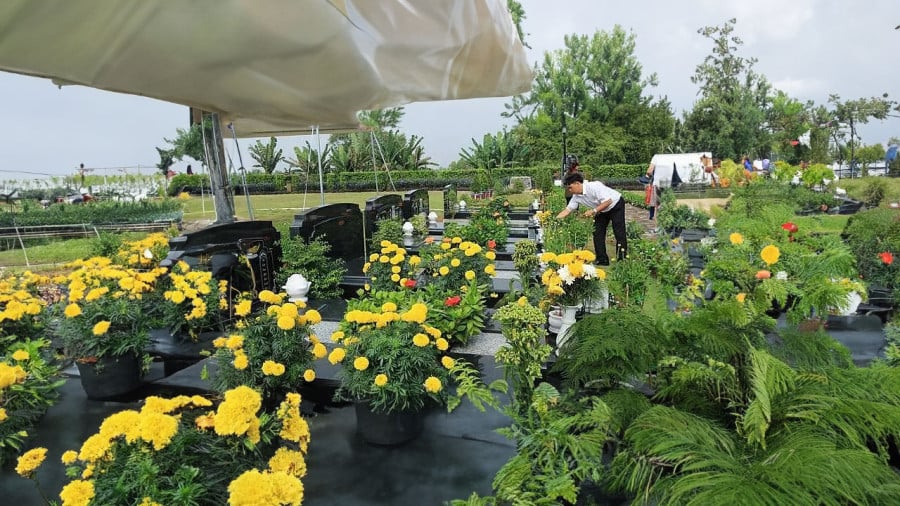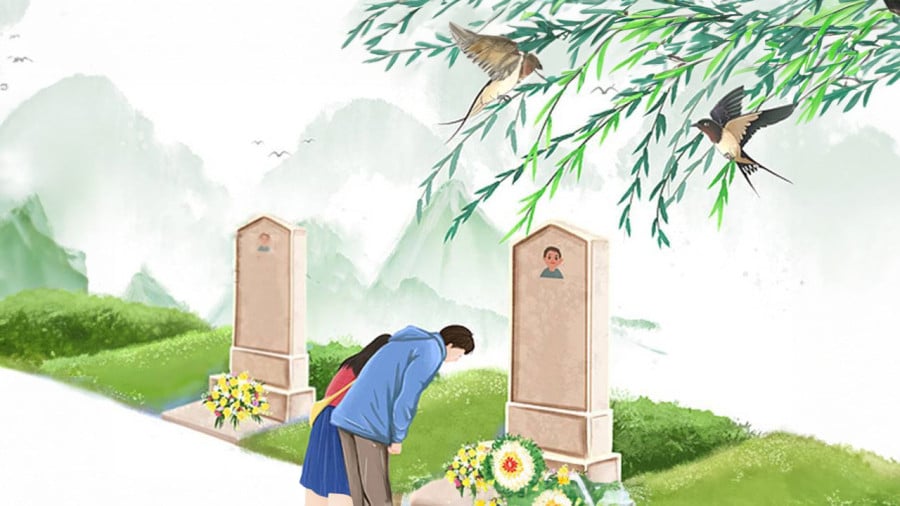The practice of tomb-sweeping, especially during the death anniversary of a loved one, the end of the year, Thanh Minh, and the seventh lunar month, is a custom in many localities. However, not everyone should engage in this practice. In particular, according to ancient customs, married daughters should not visit their maiden family’s graves, nor should sons-in-law visit their wife’s family’s graves. The underlying belief is that sons-in-law and daughters should not be the main officiants at their wife’s family’s ancestral worship ceremonies, but it does not mean they cannot accompany other family members during tomb-sweeping.
Why is it taboo for sons-in-law and daughters to sweep tombs?
Ancestral worship and the continuation of the family line were of utmost importance in the past, and these duties were solely the responsibility of the male lineage. It was considered a sacred duty for the eldest son to carry out these rituals. Daughters, on the other hand, were not afforded the same rights as they were believed to belong to their husband’s family after marriage, and sons-in-law were seen as outsiders.

In the past, married daughters were considered outsiders, and sons-in-law were merely guests.
Tomb-sweeping ceremonies were once solemn affairs, involving offerings, incense burning, and the cleaning and maintenance of gravesites. A male head of the family or clan would lead the rituals.
Ancestral worship was considered a sacred duty within the clan, and the participation of outsiders was believed to bring bad luck to the family. Therefore, married daughters, having taken on the surname of their husband’s family, and sons-in-law, as outsiders, were not deemed appropriate participants in these ceremonies, especially if they performed the rituals without the presence of other family members. The belief was that only the son should officiate ancestral worship ceremonies.
According to ancient customs, if a son-in-law or a married daughter were to officiate the tomb-sweeping ceremony, it would be disrespectful to the husband’s family and could bring bad luck to both families.

Modern-day perspectives on tomb-sweeping customs have evolved.
How have modern-day perspectives changed?
Today, the role of daughters in society has elevated, and in families without sons, daughters often take on responsibilities traditionally held by sons. In some families, the eldest daughter assumes a role equivalent to that of an eldest son.
However, there are still families and localities that adhere to the belief that the head of the family must be the eldest son, perpetuating a gender bias. As a result, married daughters are still expected to prioritize their husband’s family, and sons-in-law are considered guests. Thus, the involvement of daughters and sons-in-law in tomb-sweeping rituals varies depending on family customs, local culture, and traditions.
Reference information for contemplation



































